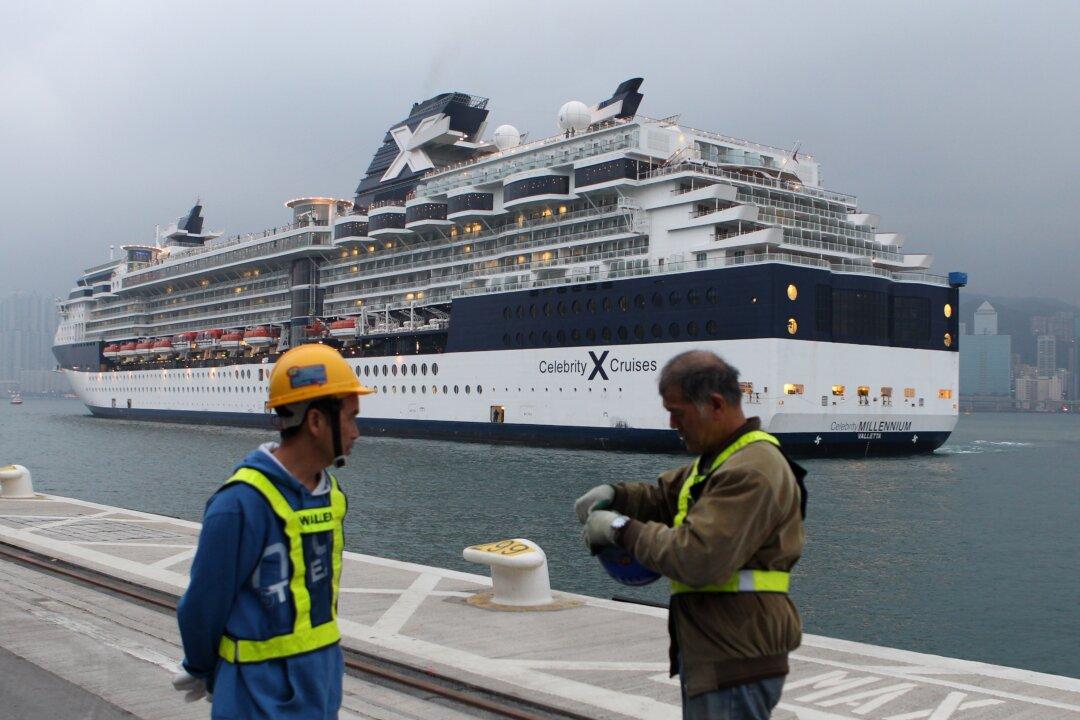The U.S. Centers for Disease Control and Prevention (CDC) reported that more than 175 people were sickened with norovirus during a recent Celebrity Cruises Summit cruise to Bermuda.
The outbreak of the stomach virus affected some 152 passengers and about 25 crew members, said the CDC in a bulletin, between May 15 to May 25. Those who were sickened exhibited typical norovirus symptoms, including diarrhea, abdominal cramps, vomiting, and headaches.





